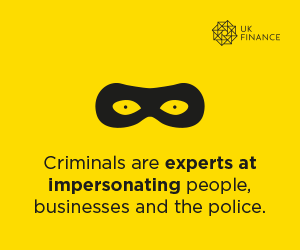APP fraud occurs when criminals impersonate a legitimate person or organisation to deceive individuals into transferring money. Many believe they won’t fall victim to such scams, often assuming these incidents only target the elderly or vulnerable. However, fraudsters use increasingly sophisticated tactics to trick anyone, regardless of age or background. They may pose as representatives from your bank, building society, the police, HMRC, your utility provider, or even the NHS.
Fraudsters may also monitor email threads, waiting to intercept communication at the point where a payment is expected. For instance, they could impersonate your solicitors during a property purchase or a tradesperson you’ve hired for home improvements.
New rules from the Payment Systems Regulator
The Payment Systems Regulator (PSR) has recently introduced significant changes to improve consumer protection against APP fraud. Starting from the 7th of October 2024, victims of APP fraud will be reimbursed in the vast majority of cases where payments were made using Faster Payments. The new reimbursement threshold is set at £85,000 per claim, providing increased financial security for victims. If you have an eligible APP fraud claim, we will reimburse you within 5 working days of raising the claim, or up to 35 working days if the claim is deemed complex.
What to Do if You Fall Victim to APP Fraud:
If you suspect or know that you’ve fallen victim to an APP scam, it is critical that you report it to the bank or building society where the payment was made from as soon as possible. Swift action can increase the chances of recovering your money and limiting further losses.
We may intervene with payments if we believe they are being directed to a fraudster. This is part of our ongoing commitment to protect you and your savings.
Each claim is assessed on an individual basis—similar cases are not grouped together. To ensure we manage your case effectively, we require specific details about your situation. Please note that under the new requirements, certain claims will not be reimbursable, including:
- Payments made with cash or cheques withdrawn from the Society.
- Claims involving gross negligence on your part.
- Instances of first-party fraud.
- International payments (though these are not typically processed by us).
- Civil disputes, such as dissatisfaction with products or services received.
- Fraud claims reported more than 13 months after the final payment or for payments made before 7th October 2024.
Ensuring Prompt Reimbursement:
To help ensure that your funds are reimbursed promptly, it is essential that you respond to any requests from your bank or building society for additional information. Providing complete and accurate details will help capture all the necessary information for your case.
Reporting to Law Enforcement:
It is illegal to partake in APP scams. If you report a scam, we may ask you to report the case to the police or, in some cases, report it on your behalf. The police may request further information and will often provide additional support to victims.
How to Protect Yourself:
While new rules are in place to help victims recover lost funds, the best defence against APP fraud is vigilance. Here’s how you can protect yourself:
- Trust Your Instincts: If something feels suspicious, don’t ignore it. Contact the company or individual requesting the payment directly, but never use contact details provided in a suspicious email or message—these could be part of the scam.
- Verify Claims: If someone claims an incident has occurred (such as a fraudulent transaction or unpaid bill), take a moment to check if it’s true.
- Stay Calm: Avoid acting out of panic. Scammers often rely on emotional responses to prompt quick, rash decisions.
- Ask Questions: Don’t hesitate to question the legitimacy of the information or request. Be sceptical of any unsolicited contact, especially those requesting immediate payment or sensitive information.
- Switch Phones: If a scammer stays on the line, they may trick you into thinking you’ve called someone else. Always hang up, wait, or use a different phone line to confirm a request.
- Don’t Assume Legitimacy: A convincing caller, email, or text may appear genuine but could still be fraudulent. Scammers often use information they’ve gathered to appear credible.
- Take Your Time: Don't feel pressured to act quickly. Stop, think, and assess the situation carefully before proceeding with any payment or sharing any details.
- Listen to Your Gut: If something doesn’t feel right, it probably isn’t. Politely hang up the phone, ignore the email, and avoid continuing the interaction.
- Never Share Sensitive Information: Passwords, account details, and other sensitive data should never be shared—especially not over unsolicited communication.
- Report and Block: If you receive a suspicious call, email, or text, block the number or mark the email as spam to prevent further contact.
If You’re Unsatisfied with the Outcome:
If you’re not satisfied with the outcome of your case, you can raise a formal complaint through our existing complaints procedure. If necessary, you can escalate your complaint to the Financial Ombudsman Service (FOS) for further investigation.
For additional support and to report a scam, you can contact Action Fraud, the UK’s national reporting centre for fraud and cybercrime. Staying informed and vigilant is key to preventing fraud. You can also learn more about protecting yourself against scams by visiting the Take Five campaign website, which provides helpful advice on staying safe from financial fraud

